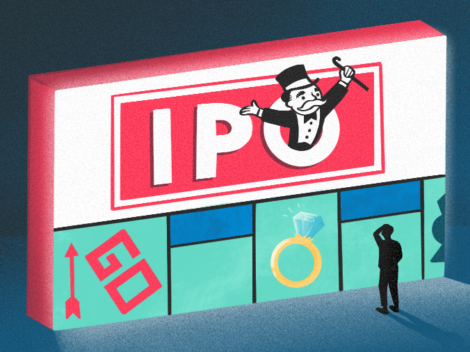Indigo, a company focused on sustainable agriculture, has raised $250 million in Series E funding. Baillie Gifford, the Investment Corporation of Dubai, the Alaska Permanent Fund, and Flagship Pioneering all participated in the round.
Follow Crunchbase News on Twitter
A source familiar with the deal told Crunchbase News the company is now valued at $3.5 billion, post-money. After its last $47 million infusion in December 2017, it was valued at nearly $1.5 billion, post-money. Indigo has raised more than $650 million since its inception, according to the company.
Founded in 2014, Indigo aims to improve sustainable farming practices and increase farmer profitability through the use of microbiology. By using plant microbes, or naturally forming microscopic organisms, Indigo aims to strengthen plants while making them more resistant to water shortages and harsh climates. The company claims to be able to increase farmer crop yields by 10 to 15 percent with microbial technology.
Indigo’s CEO and Founder David Perry told Crunchbase News in an email that fertilizers and chemicals are toxic to “plants, animals, [and] humans.”
Through Indigo, farmers can buy microbe-coated seeds or enter into contracts with the company through which they can sell yields at a premium price.
“Fortunately, consumers are more and more interested in where their food comes from and how its grown, plus the quality of that food,” Perry explained. “Buyers are willing to pay premiums for the specific quality that they’re looking for or crops grown with sustainable methods.”
Along with the round, the company is also launching an online marketplace to connect buyers with sellers. Through the marketplace platform, buyers can place bids for identity-preserved grain, with requests for certain environmental or other conditions. Those conditions can include anything from requesting corn that is grown on fields without irrigation to regional specifications like asking for crops grown solely in Texas.
“We create the marketplace, but growers and buyers determine the price. It’s done primarily through bids,” Perry explained. “Growers create bids based on what they’re looking for, and we send that to farmers in their area, and then farmers can choose to accept that bid or not.” He added that farmers receive about a dozen different bids on average, and as long as they can fill at least a truckload of a crop, they are not limited on the number of bids that they can accept.
Perry believes that the Indigo Marketplace, at a basic level, de-commoditizes grain. Farmers traditionally grow grain, possibly using different methods and techniques, and then toss it into a larger pile along with other farmers’ yields. The Indigo marketplace enables those farmers to sell at a premium price for producing specialty products.
The company isn’t currently releasing revenue metrics, but Perry says the round will be used to double down on building out the marketplace, both in engineering, logistics, and adding more buyers and growers to the platform. That will include growing its 100 plus team in Memphis, while also adding to its team at its Boston headquarters.
Perry is hoping that a new business model for farming through Indigo will change the way that people think about sustainability and the way that farmers think about business.
“We don’t have to synthesize new stuff. We just have to find the things in nature that exist to do the same things,” he expressed passionately. “Once people grasp that, their entire idea on how we should farm generally changes.”
With an extra $250 million, the company is more equipped to do so.
Editorial Update: Though the company is not disclosing its valuation, a source familiar with the Indigo round updated Crunchbase News on its valuation. The piece has been updated to reflect that.

Stay up to date with recent funding rounds, acquisitions, and more with the Crunchbase Daily.


![M&A - Illustration of a magnet attracting various products. [Dom Guzman]](https://news.crunchbase.com/wp-content/uploads/mergers_and_acquisitions-470x352.jpg)



![Illustration of a guy watering plants with a blocked hose - Global [Dom Guzman]](https://news.crunchbase.com/wp-content/uploads/quarterly-global-3-300x168.jpg)
67.1K Followers